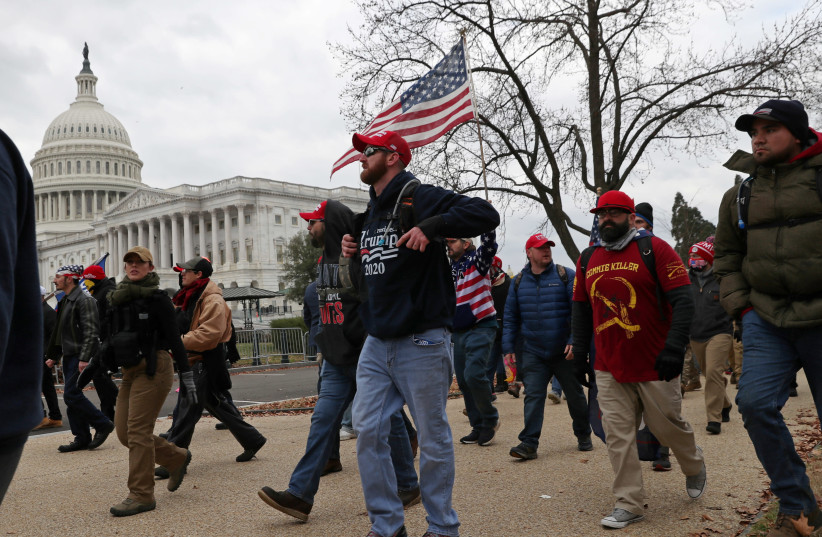Despite popular belief fed by veteran presence during the January 6, 2021 insurrection in the US capital, American military veterans do not support extremist organizations, like the Proud Boys or Antifa, more than the general population, a new study has found.
The survey, which was carried out by RAND Corporation and looked at nearly 1,000 veterans, found that support for extremist groups differed depending on the branch of the military veterans come from.
"We found no evidence to support the notion that the veteran community, as a whole, exhibits higher rates of support for violent extremist groups or extremist beliefs than the American public," said Todd C. Helmus, the study's lead author and a senior behavioral scientist at RAND, a nonprofit research organization. "However, our findings do suggest work still may be needed to make sure veterans are not susceptible to being recruited by those with extremist ideologies."
Why is extremism amongst veterans being studied?
Veterans are often the target of attempted radicalization by extremist groups. Veterans' past military training and accompanying leadership skills, combined with a feeling that their involvement in an extremist group brings legitimacy, creates for a strong motivation by extremist recruiters. Furthermore, the military is comprised mostly of white men, a demographic group that many extremists associate with, according to the researchers.
"It seems clear that veterans bring a unique and dangerous set of capabilities to extremist groups," said Ryan Andrew Brown, co-author of the study and a RAND senior behavioral scientist. "So even a smaller prevalence rate of extremist attitudes among veterans could still represents an outsized security threat to the United States."

Support of extremist groups in the US military
Researchers collected survey responses from 989 people who had said they had served on active duty but were no longer doing so. Participants were asked about their level of support for the extremist groups Antifa, the Proud Boys, white supremacists groups, QAnon ideology, support for political violence and the Great Replacement theory.
Veterans supported Antifa, short for anti-facist, at a lower level than the general population, at 5.5% compared to the US general population's support level of 10%. They also supported White supremacists at a lower level of 0.7% compared to the general US level of 7%.
Carrying on this trend, 4.2% of veterans support the Proud Boys, compared to 9% of the general population. Additionally, 13.5% groups believed in QAnon conspiracy theory, compared to 17% of the general population.
However, 17.7% of veterans support the necessity of political violence, which is only marginally smaller than the general population's 19%. Additionally, 28.8% of veterans believe in the Great Replacement theory, compared to the general populations 34%. The Great Replacement Theory is the belief that the position of white people in society is being replaced by the immigration of non-white people. Some followers of the theory believe that the replacement is caused by Jews, hence the "Jews shall not replace us" chants at the Charlottesville 2017 march.
The beliefs are not equally held amongst different branches of the military, with the Marine Corps veterans showing higher support for Antifa, the Proud Boys, political violence, the Great Replacement Theory and QAnon.
"Given the anecdotal information about extremist group recruitment preferences and their active targeting of veterans, we would have assumed that these reported prevalence rates would be higher," Helmus said.
Researchers expressed hope that the study will encourage military and veteran service organizations to continue to explore what drives some active-duty personnel and veterans to endorse extremist beliefs and join extremist groups. Such attempts should include both additional surveys and interview-based studies that would help researchers understand the factors that cause radicalization, they said.
